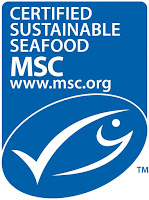Initial broadcast - 8:00 pm Friday October 9, 2015
To listen to the show after the initial broadcast, please visit our archive RTHK's DAB 31.
 |
| Our journey here has come to an end, but we'll carry on protecting this amazing environment! |
In Green Hong Kong's last episode, Fei and Kathryn sit down with our show scientist Inga to discuss some of the key, meaningful things we've learned. We discuss a few of the special things about Hong Kong, corals and wildlife, but talk about one of the biggest challenges facing Hong Kong's environment: waste management. We reflect on our interview with the EPD, as well as the global issue of too much plastic in our seas. At the end of the day, there are small changes we can all make in our daily lives to help reduce our impact on the environment. Simple things like bringing your own water bottle, choosing products with less or no packaging, saying no to straws, reducing meat consumption, etc., can all have a great positive impact. As Inga mentions, we must all realize that every individual's actions do have a meaningful impact, and we should never think that our individual difference is just too small! Every little action counts to making a greener Hong Kong.
Free water in Hong Kong! Just follow the map!
More information from this fantastic resource on how to reduce your waste is available at zerowastehongkong.com.
We're so grateful to have been given this amazing opportunity to do something we love and share about our passion for the environment. Thank you to CIBS and thank you to our listeners and supporters! And a special thank you to all of our guests for taking the time out of their busy lives to come and talk with our little radio show!
This show would not have been possible without the support of:
Nick Hamilton, who introduced me to radio back in the UK and offered technical advice and feedback to get this show going!
Sara Hessel, a kind friend who offered her radio expertise and inspiration!
Chris Tam, who patiently answered audio-editing questions and was always there for technical help!
Thank you, too, to the team:
Inga Conti-Jerpe for her scientific expertise and explanations;
Fei Hung for her commitment to come to the studio on her days off and translate off the top of her head;
Dante Archangeli for advise on content and organization.















